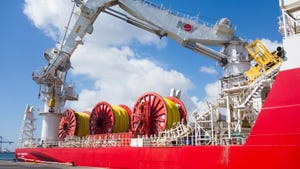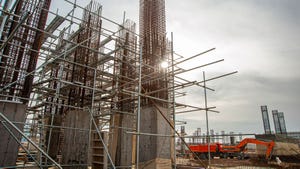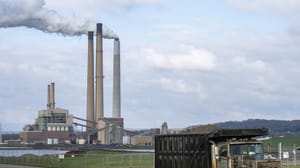Alibaba Aims New On-Prem Cloud Stack at Asian Retail Clients
Chinese tech giant Alibaba is now offering customers an option to use its cloud services on infrastructure located in their own data centers•Delivered together with Hewlett Packard Enterprise, Apsara Stack follows in the footsteps of Alibaba’s American rivals, such as Microsoft Azure•Apsara Stack was one of eight new cloud services Alibaba unveiled at its cloud summit in Singapore, its first cloud conference outside of China

Following in the footsteps of its American competitors, Chinese e-commerce and cloud giant Alibaba announced a version of its cloud infrastructure service that can be hosted in customers’ own data centers.
Even the name, Apsara Stack, borrows from Microsoft’s equivalent, Azure Stack.
Alibaba announced the addition along with seven other new cloud infrastructure services and a new Asian partner program this week at Alibaba Cloud Summit Infinity in Singapore, its first cloud conference outside of China. While its native country is the region’s biggest market, the company is cranking up efforts to expand in other parts of Asia Pacific.
“Asia Pacific is a unique market, and as a global cloud services provider with an Asian origin, we are committed to leverage our knowledge and experience to build a sustainable regional ecosystem and enrich our offerings to meet the needs of our customers in this digital age,” Derek Wang, chief solution architect for Alibaba Cloud International, said in a statement.
Hewlett Packard Enterprise is Alibaba’s hardware partner for the on-premises cloud product. It supports Alibaba Cloud’s Infrastructure-as-a-Service, big data, middle platform, and security services.
Apsara Stack can be deployed either as a stand-alone private cloud or in a hybrid scenario, combining on-premises infrastructure with Alibaba’s public cloud.
Going after the opportunity to give enterprises that cannot, or don’t want to, rely entirely on cloud services for their technology infrastructure needs, all major public cloud providers have been rolling out solutions, on their own or in partnerships, that extend their clouds into customers’ data centers.
Microsoft’s Azure Stack is a software stack that can run on a variety of vendors’ hardware, including HPE’s; Oracle Cloud at Customer is a hardware-and-software solution that gives clients similar functionality they get in Oracle’s public cloud on-premises; Amazon Web Services has a partnership with VMware, where VMware essentially operates a VMware cloud service on bare-metal servers in Amazon data centers that can be integrated with customers’ on-prem VMware environments; Google Cloud, through a partnership with Cisco, is extending its public cloud to enterprise data centers.
Among the other services Alibaba announced are Dedicated Host, which gives clients a choice to avoid sharing physical cloud servers in Alibaba data centers with other customers; Hybrid Backup Recovery, data backup provided as a cloud service; and Machine Learning Platform for AI, a suite of tools and algorithms for users of Alibaba’s cloud AI services who don’t have deep AI expertise.
While there doesn’t seem to be anything about the eight new offerings Alibaba announced this week that cannot apply to all industry verticals, the company aimed its messaging at retail customers. Its New Retail concept seeks to integrate retail businesses’ online and offline operations.
Apsara Stack, for example, can enable retail companies to integrate CRM, supply chain, and other data sources on a single platform, according to the company. It can also help streamline logistics, transactions, and marketing.
Read more about:
Asia-PacificAbout the Author
You May Also Like







